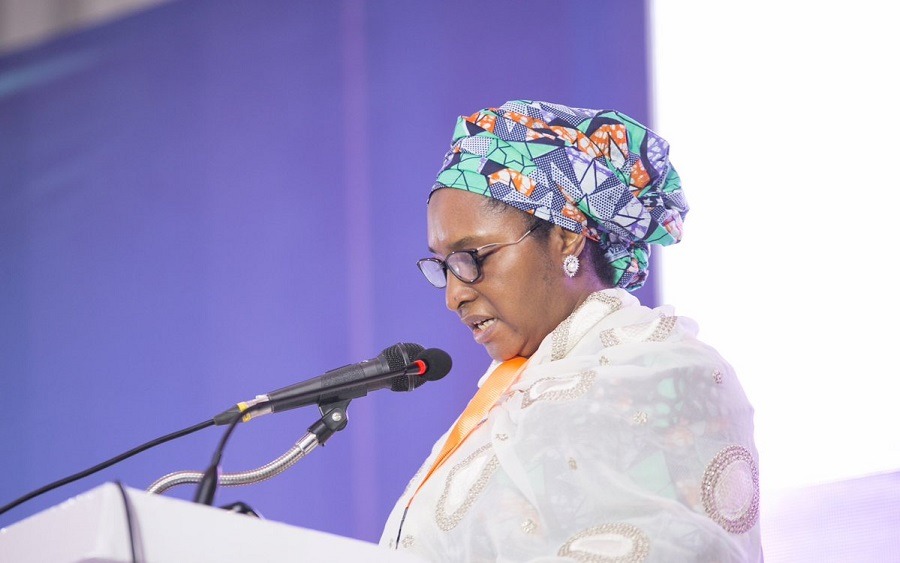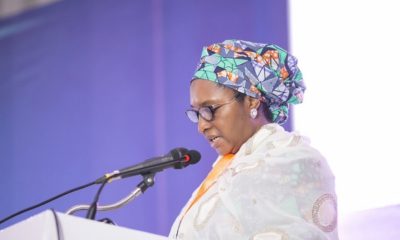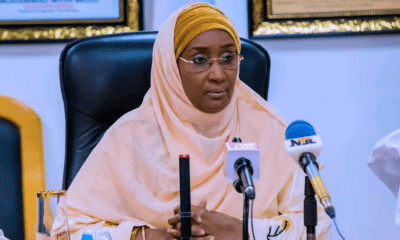The Federal Government has alerted Nigerians on possible global economic recession this year, saying that there is already a reduction in growth owing to the impacts of the COVID-19 pandemic.
However, the Nigerian government said the nation’s foreign exchange reserves were healthy enough to withstand and wave through the consequences of the global economic crisis.
Fielding questions during an interview on national television where these disclosures were made, the Minister of Finance, Budget and National Planning, Zainab Ahmed, lamented that people’s spending power had already been weakened as a result of the pandemic and inflation globally.
Ahmed said some measures had been put in place to achieve the N10 trillion revenue target of the Federal Government, as projected in the 2023 budget, saying that the realisation of this would go a long way in making the nation pull through the anticipated recession.
“Clearly there is going to be a decline in growth. And why we are having this decline in growth because of the sustained economic impact of the COVID-19 pandemic.
“We’ve seen the resurgence of COVID-19 in some developed economies, especially China, and also the effect of the Russia-Ukraine war that is having a global impact.
“It is true that’s our reserves during the first global recession. Our reserves are now down to $34bn, and that is still a healthy level. It means we are able to meet at least six months of imports and other expenses into the country.
“It means we can withstand another global shock if we are able to carry through a coordinated response between the monetary, fiscal as well as trade authorities. We have learnt a lot from the experience that we went through during the COVID and it shows that when we plan well we can actually withstand the shocks,” she assured.
The minister noted that Nigeria’s economy experienced a recession during the COVID but it was a short-lived one because there was a coordinated response from government and private organizations.
She added that at the time Nigeria was battling the pandemic alongside other nations of the world, the country was able to manouver because it cut cost of governance and spending to enable it pump more funds in the healthcare sector.
Ahmed maintained that, “with the right policies, we can weather another global recession.”
Meanwhile, Ahmed disclosed that the Federal Government borrows funds to purchase petrol.
This revelation is coming as the country continues to incur rising fuel subsidy bills and the present government’s insistence on removing subsidy from the second quarter of this year through gradual approach.
To achieve this, Ahmed stated that government would be able to increase the revenue performance on the 2022 figure, as well as reduce the debt service to revenue ratio.
She said, “we also have to exit fuel subsidy, because that is also a very significant contributory factor. You can look at it in two ways – it is revenue that would have come to the government but it doesn’t because it has been spent on fuel subsidy.
“But also, where there is nothing for the government to buy the refined petroleum products, we have to borrow to buy the petroleum products. So if you take that out, that’s about N3.25tn, that is a significant relief.”
On whether it would be possible to stop the fuel subsidy regime in June this year, Ahmed said, “what will be safer is for the current administration, maybe at the beginning of the second quarter, to start removing the fuel subsidy.”

 Billionaire Watch3 weeks ago
Billionaire Watch3 weeks ago
 Startups4 weeks ago
Startups4 weeks ago
 News4 weeks ago
News4 weeks ago
 News4 weeks ago
News4 weeks ago
 Bitcoin4 weeks ago
Bitcoin4 weeks ago
 Naira4 weeks ago
Naira4 weeks ago
 Forex3 weeks ago
Forex3 weeks ago
 Treasury Bills4 weeks ago
Treasury Bills4 weeks ago



























